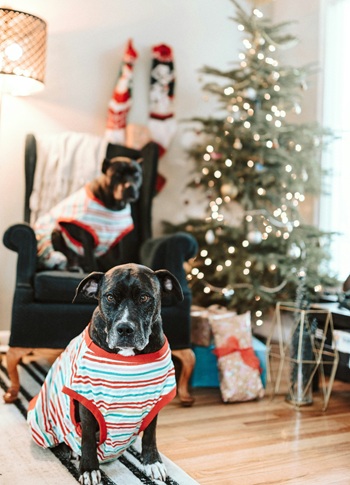
With a long list of potential hazards pets face during the holidays, one of the biggest problems veterinarians see is not the result of your dog stealing a turkey leg, though that certainly can cause trouble. One of the most common emergencies are bite wounds. Many people bring their pets with them when they travel to a family member’s home that also has a pet. Despite the holiday spirit, many animals do not get along, and fights break out. It is recommended to slowly introduce dogs that do not normally hang out together. Initially, keep all pets on a leash until you know they get along. The last thing you need over the holidays is to make a trip to the emergency room after a fight so keep animals separated if they can’t mind their manners.
While most owners are aware that chocolate, raisins, grapes, and macadamia nuts are toxic to dogs, there are a few items that are not as well known. Bread dough toxicity is particularly a problem in small dogs. After ingesting the dough dogs can become intoxicated since the substance ferments in their stomach. Dogs often get into presents with food in them that are left wrapped under the tree. They can easily smell the food under the wrapping paper and unfortunately, they sometimes end up ingesting the food as well as the container it’s in. One of the newer toxicities that have come to light is Xylitol poisoning, thanks to “sugar-free” products. Xylitol is an artificial sweetener that causes dogs to have very low blood sugar levels and can lead to liver failure. This product is most commonly found in sugar-free gums and if your dog snatches just one piece it can be toxic. While many of the above toxicities seem to be found only in dogs, there are a few items that you should be careful with if you have cats around. Liquid potpourri can cause ulcers in the mouths, gastrointestinal and dermal irritation. Lilies are also toxic to cats. Many cats will chew on the leaves and petals, and this can lead to fatal acute renal failure. If you are at all concerned for your pet’s health, contact a veterinarian.
Related Articles & Free Email Newsletter Sign Up
6 Tips to Keep Your Pet Healthy During Cold Weather
How Positive Reinforcement Works in Training Dogs


Comment here